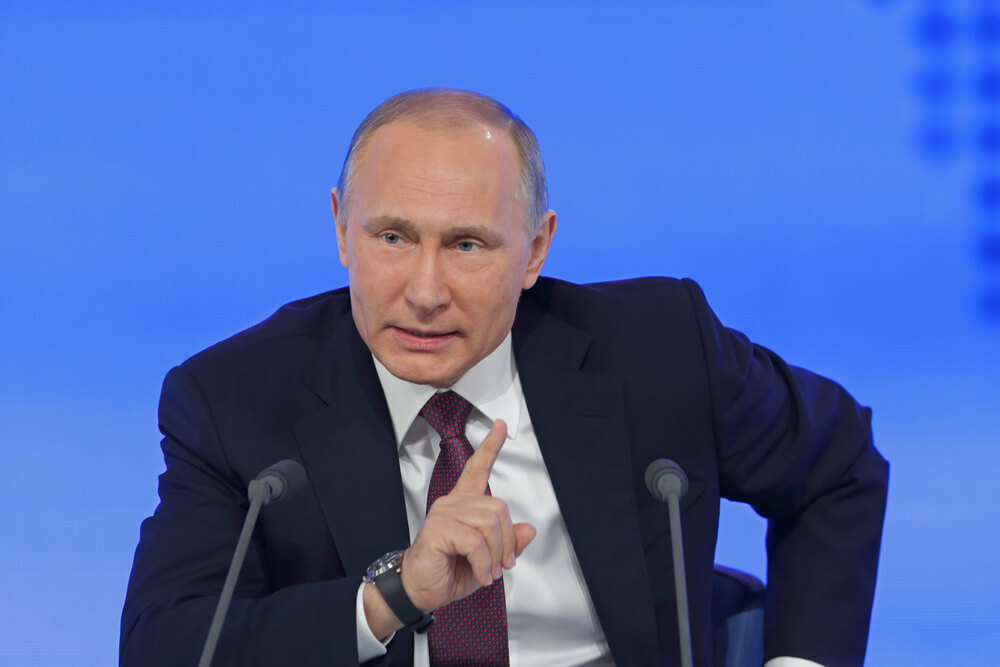Recent developments in the Donbas confirm that while the Russian army is indeed advancing, its progress is very slow and comes at a phenomenal cost in human lives and limbs.
But if Russian President Vladimir Putin can shrug off the deaths of hundreds of thousands of his soldiers, does that mean Ukraine and Europe are destined to live with an endless conflict?
To believe that Russia is on the verge of some kind of economic or political collapse is wishful thinking.
Russia commands far more resources than Ukraine does, and Westerners have too often underestimated the Russian army’s adaptability.
The country still has a massive capacity to produce (and import) attack drones and mobilize military investment at a rate double that of the West in Ukraine.
That means it can maintain a manpower and an equipment edge despite its massive losses. The civilian economy may be stagnant, but the military machine is running at full speed.
How the bloodletting can be stopped?
But even if we are willing to admit that there will be no military solution, because neither Ukraine nor Russia can win the war, we must ask how the bloodletting can be stopped.
One way is for the West to increase its support for Ukraine while doing more to break the back of Russia’s war economy, namely by doing what it takes to cut off its hydrocarbon exports.
This is not a simple matter: the European Union’s energy imports from Russia in 2024 exceeded its annual aid to Ukraine.
To force a reckoning that might end the fighting, it would seem that Europe needs US President Donald Trump’s help.
The United States would have to provide Ukraine with the capability to strike targets deep inside Russia, just as Russia has been doing to Ukraine.
The US would also need to seize frozen Russian financial assets that are under its jurisdiction and send them to Ukraine.
Then, the US and the EU would need to impose secondary sanctions on the main buyers of Russian hydrocarbons: India, China, and Turkey. Well-designed secondary sanctions have been the best weapons deployed against Russia’s war economy so far, and harsh measures targeting its energy sector could be the straw that breaks the camel’s back.
But Trump has shown no serious interest in pursuing these options. The 50% tariff that he slapped on India was not really related to its purchases of Russian oil; rather, it is a ploy to extract concessions from India’s government. Once those are obtained, Trump may well drop the 50% levy.
Having just announced a trade armistice with China, Trump is unlikely to risk antagonizing it over Ukraine
As for China, the uncertainty is even greater. Having just announced a trade armistice with China, Trump is unlikely to risk antagonizing it over Ukraine – a country that he cares nothing about.
Moreover, if Trump were to ask Chinese President Xi Jinping to intercede with Putin, what would Xi ask for in exchange?
He would probably propose an arrangement in which Ukraine is neutralized as a perceived threat to Russia, which would threaten European interests (not to mention Ukrainian sovereignty).
Since this would be in line with the spheres-of-influence diplomacy that Xi, Putin, and Trump all embrace, Trump would probably jump at it.
Xi would not bring Putin on board for free
Whereas former US President Joe Biden’s foreign policy sought to preserve American primacy in the world, Trump seems more open to co-managing things with the Chinese, even going so far as to refer to the Sino-American relationship as the “G2.”
But even with all the benefits that would accrue to China in a carved-up world, Xi would not bring Putin on board for free.
Since January 2025, Putin has managed to buy time by manipulating the easily manipulated Trump
On the contrary, he would want the US to state openly that Taiwan is not and never will be an independent state.
Since January 2025, Putin has managed to buy time by manipulating the easily manipulated Trump.
This approach is now reaching its limits, however, simply because Trump has failed to extract any concession from Putin that would allow him to claim, however implausibly, a formal diplomatic victory.
Still, Trump is not seeking Russia’s defeat, and though he may finally be putting a little more pressure on Putin, it is not the kind that would ever make Putin buckle. But China can push Putin toward a compromise.
Dialogue with the Kremlin must happen
What could this look like? Sadly, European Commission President Ursula von der Leyen lacks the competence to meet with Xi as an equal; European Council President António Costa is too self-effacing; and the new EU chief diplomat, former Estonian Prime Minister Kaja Kallas, appears to be too weak to take the lead.
 Dialogue with the Kremlin must happen, whether Europeans like it or not
Dialogue with the Kremlin must happen, whether Europeans like it or not
It is therefore up to leading member states – France, Germany, and Poland (given its proximity to Russia and Ukraine) – to act.
Dialogue with the Kremlin must happen, too, whether Europeans like it or not. Europe alone cannot reverse the tide unless it bets on a Russian collapse, which is far from certain.
Of course, what is true today will not necessarily be true tomorrow. Everything is a matter of the balance of power, not of clear-cut principles.
Europe, which is enduring many hardships, has no interest in an endless war in Ukraine.
But it does have interests there, and it cannot afford to agree to a settlement that ignores them.
Zaki Laïdi, a former special adviser to the High Representative of the European Union for Foreign Affairs and Security Policy (2020-24), is a professor at Sciences Po.